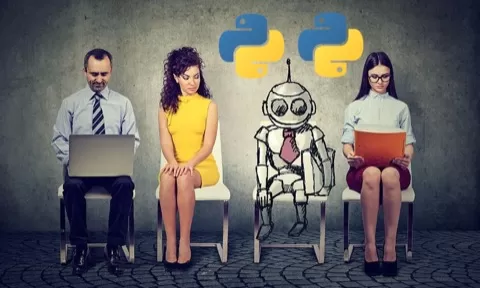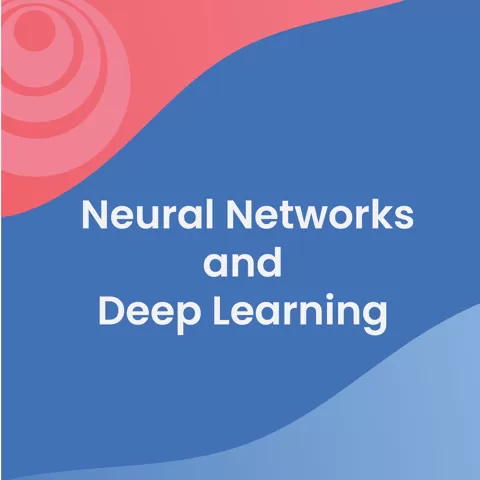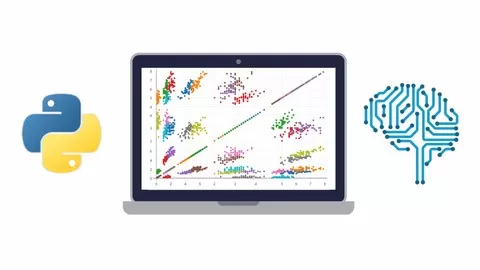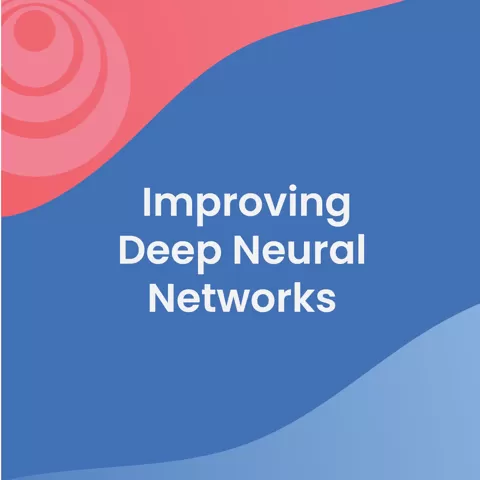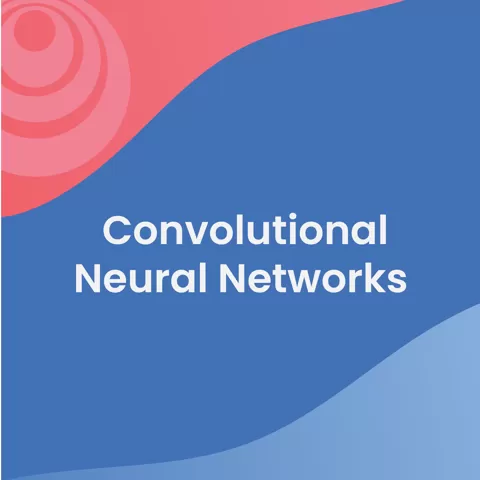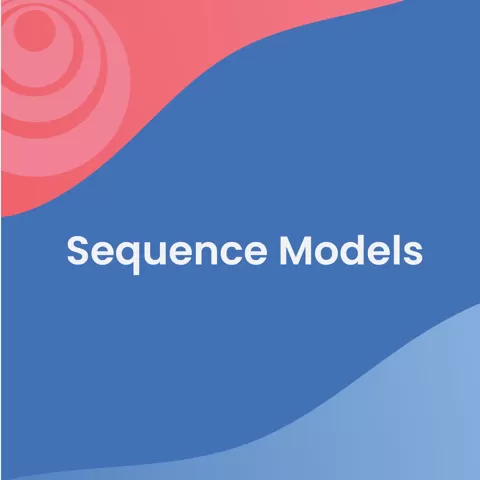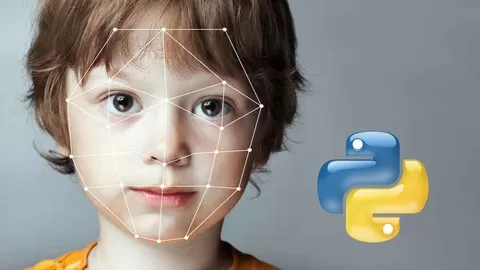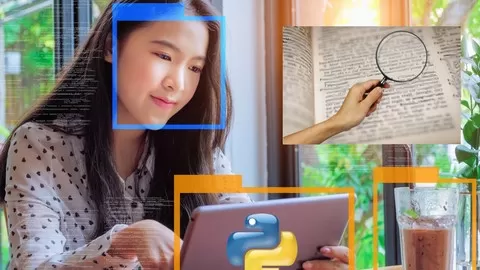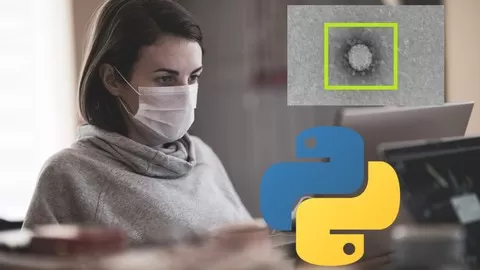Machine Learning and Data Science for programming beginners using python with scikit-learn, SciPy, Matplotlib & Pandas.
Hi.. Hello and welcome to my new course, Machine Learning with Python for Dummies. We will discuss about the overview of the course and the contents included in this course.
Artificial Intelligence, Machine Learning and Deep Learning Neural Networks are the most used terms now a days in the technology world. Its also the most mis-understood and confused terms too.
Artificial Intelligence is a broad spectrum of science which tries to make machines intelligent like humans. Machine Learning and Neural Networks are two subsets that comes under this vast machine learning platform.
Lets check what’s machine learning now. Just like we human babies, we were actually in our learning phase then. We learned how to crawl, stand, walk, then speak words, then make simple sentences.. We learned from our experiences. We had many trials and errors before we learned how to walk and talk. The best trials for walking and talking which gave positive results were kept in our memory and made use later. This process is highly compared to a Machine Learning Mechanism.
Then we grew young and started thinking logically about many things, had emotional feelings, etc. We kept on thinking and found solutions to problems in our daily life. That’s what the Deep Learning Neural Network Scientists are trying to achieve. A thinking machine.
But in this course we are focusing mainly in Machine Learning. Throughout this course, we are preparing our machine to make it ready for a prediction test. Its Just like how you prepare for your Mathematics Test in school or college. We learn and train ourselves by solving the most possible number of similar mathematical problems. Lets call these sample data of similar problems and their solutions as the ‘Training Input’ and ‘Training Output’ Respectively. And then the day comes when we have the actual test. We will be given new set of problems to solve, but very similar to the problems we learned, and based on the previous practice and learning experiences, we have to solve them. We can call those problems as ‘Testing Input’ and our answers as ‘Predicted Output’. Later, our professor will evaluate these answers and compare it with its actual answers, we call the actual answers as ‘Test Output’. Then a mark will be given on basis of the correct answers. We call this mark as our ‘Accuracy’. The life of a machine learning engineer and a data-scientist is dedicated to make this accuracy as good as possible through different techniques and evaluation measures.
Here are the major topics that are included in this course. We are using Python as our programming language. Python is a great tool for the development of programs which perform data analysis and prediction. It has tons of classes and features which perform the complex mathematical analysis and give solutions in simple one or two lines of code so that we don’t have to be a statistic genius or mathematical Nerd to learn data science and machine learning. Python really makes things easy.
These are the main topics that are included in our course:
System and Environment preparation
Installing Python and Required Libraries (Anaconda)
Basics of python and sci-py
Python, Numpy , Matplotlib and Pandas Quick Courses
Load data set from csv / url
Load CSV data with Python, NumPY and Pandas
Summarize data with description
Peeking data, Data Dimensions, Data Types, Statistics, Class Distribution, Attribute Correlations, Univariate Skew
Summarize data with visualization
Univariate, Multivariate Plots
Prepare data
Data Transforms, Rescaling, Standardizing, Normalizing and Binarization
Feature selection – Automatic selection techniques
Univariate Selection, Recursive Feature Elimination, Principle Component Analysis and Feature Importance
Machine Learning Algorithm Evaluation
Train and Test Sets, K-fold Cross Validation, Leave One Out Cross Validation, Repeated Random Test-Train Splits
Algorithm Evaluation Metrics
Classification Metrics – Classification Accuracy, Logarithmic Loss, Area Under ROC Curve, Confusion Matrix, Classification Report
Regression Metrics – Mean Absolute Error, Mean Squared Error, R 2
Spot-Checking Classification Algorithms
Linear Algorithms – Logistic Regression, Linear Discriminant Analysis
Non-Linear Algorithms – k-Nearest Neighbours, Naive Bayes, Classification and Regression Trees, Support Vector Machines
Spot-Checking Regression Algorithms
Linear Algorithms – Linear Regression, Ridge Regression, LASSO Linear Regression and Elastic Net Regression
Non-Linear Algorithms – k-Nearest Neighbours, Classification and Regression Trees, Support Vector Machines
Choose The Best Machine Learning Model
Compare Logistic Regression, Linear Discriminant Analysis, k-Nearest Neighbours, Classification and Regression Trees, Naive Bayes, Support Vector Machines
Automate and Combine Workflows with Pipeline
Data Preparation and Modelling Pipeline
Feature Extraction and Modelling Pipeline
Performance Improvement with Ensembles
Voting Ensemble
Bagging: Bagged Decision Trees, Random Forest, Extra Trees
Boosting: AdaBoost, Gradient Boosting
Performance Improvement with Algorithm Parameter Tuning
Grid Search Parameter
Random Search Parameter Tuning
Save and Load (serialize and deserialize) Machine Learning Models
Using pickle
Using Joblib
Finalize a machine learning project
Steps For Finalizing classification models – pima indian dataset
Dealing with imbalanced class problem
Steps For Finalizing multi class models – iris flower dataset
Steps For Finalizing regression models – boston housing dataset
Predictions and Case Studies
Case study 1: predictions using the Pima Indian Diabetes Dataset
Case study: Iris Flower Multi Class Dataset
Case study 2: the Boston Housing cost Dataset
Machine Learning and Data Science is the most lucrative job in the technology arena now a days. Learning this course will make you equipped to compete in this area.
Best wishes with your learning. Se you soon in the class room.
Basic knowledge
A medium configuration computer and the willingness to indulge in the world of Machine Learning
